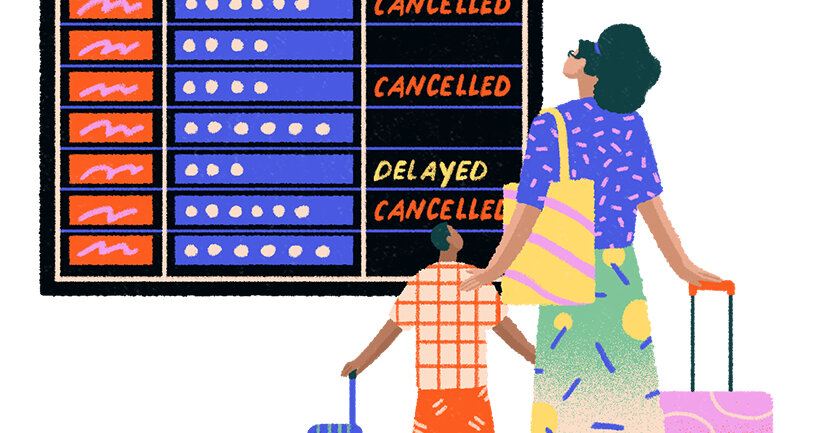The Federal Aviation Administration says that weather is the leading cause of flight delays. But last summer, most delays were man-made, according to data from the Bureau of Transportation Statistics. From June to August last year, 8 percent of delays were caused by airlines and about 5 percent were attributed to issues with the national aviation system, which includes air traffic control problems. Less than 1 percent of the delays were weather-related, B.T.S. data shows.
The F.A.A. has recently taken steps to pre-empt potential chaos this summer. It is allowing airlines, including Delta, United and American, to operate fewer flights and instead use larger aircraft that can accommodate more passengers.
The change will help “mitigate the risk of encountering delays and cancellations,” said Michael McCormick, an assistant professor at Embry-Riddle Aeronautical University and a former F.A.A. control tower operator.
The agency has also announced 169 new routes along the East Coast that it said are more direct.
But that doesn’t mean things won’t fall apart, and knowing your rights is key.
Airlines in the U.S. are not required to compensate travelers for delays and cancellations. But all 10 major carriers will rebook passengers on another flight if the situation was under the airline’s control and will pay for meals when travelers have waited for three hours or more.
The Department of Transportation tracks delays and lays out refund and cancellation policies for controllable circumstances on its airline customer service dashboard.
Airlines might soon be required to offer cash payments, meals and hotel accommodations for carrier-caused slowdowns of three hours or more, if a rule recently proposed by President Biden and Transportation Secretary Pete Buttigieg takes effect.
Travel advisers recommended considering trip insurance, which usually covers flight delays, and checking credit card policies on reimbursements for travel mishaps. Monitoring airline apps and opting in for text updates is also a good idea, they said. And if your flight is delayed, best to stay close to the gate.
If you’ve reached frequent flier status or purchased premium tickets or priority status, there is a priority line at the check-in counter, or a phone number, where service will be faster, said James Ferrara, the founder of InteleTravel, a global travel adviser network.
Many airlines offer robust and speedy customer service through Twitter. But it’s not the only way to reach them….
Click Here to Read the Full Original Article at NYT > Travel…
